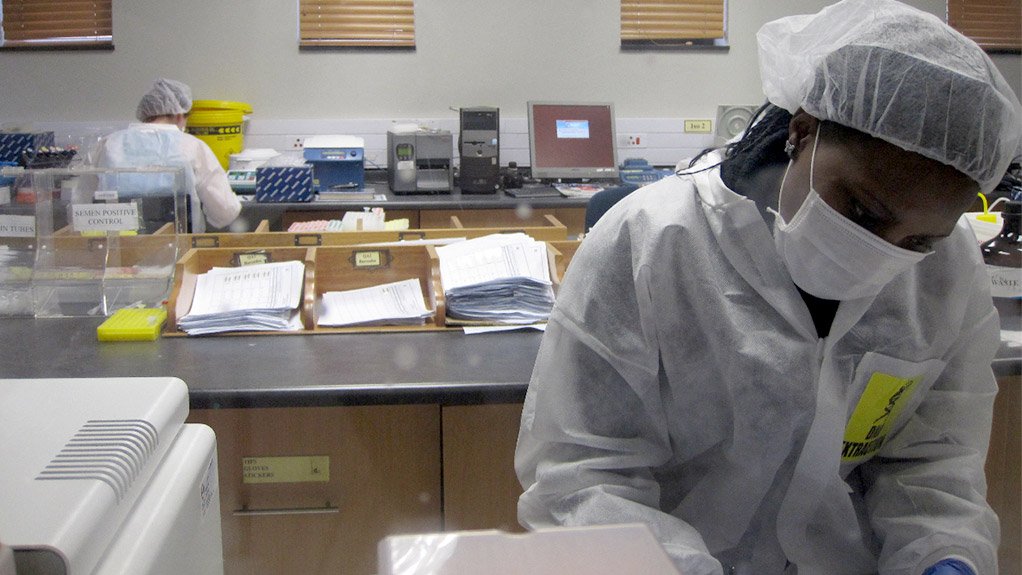The path has been cleared for South Africa to have its own extensive DNA database for use by the South African Police Service (SAPS) in the investigation of crimes.
The DNA Act has been signed by President Jacob Zuma and published in the Government Gazette, bringing to fruition a decade of work for Vanessa Lynch and her colleagues from The DNA Project.
An attorney by training, Lynch formed nongovernmental organisation The DNA Project to pursue the goal of establishing a DNA database within SAPS.
Matching a human being’s distinct genetic blueprint, their DNA, found on a crime scene, to an extensive database of offenders may seem like a simple exercise. Done in almost every crime series on television, and at law enforcement agencies in numerous countries around the world, it is hard to believe this has not been a reality in South Africa.
However, Criminal Law (Forensic Procedures) Amendment Act, No 37 of 2013, now, finally, changes this.
There are “busy times ahead, but so exciting”, says Lynch.
The SAPS does currently have a DNA database, but it is populated by a mere, roughly, 180 000 profiles.
Prior to the new Act, there was no legislation regulating DNA collection by the SAPS, which meant it had no mandate to take DNA samples from those arrested for serious crimes, or from convicted offenders.
However, the new Act enables the establishment, regulation, administration and maintenance of what will be called the National Forensic DNA Database of South Africa.
It will make it mandatory for DNA samples to be collected by specially trained police officers from those arrested and convicted of serious offences.
If SAPS increases the number of profiles on its database, it will increase the chance of finding a match and linking a DNA profile found at a crime scene to a suspect, or, at the very least, deriving criminal intelligence therefrom.
Moreover, DNA profiles can also serve to exonerate convicted persons, as well as assist in the identification of missing persons and human remains.
SAPS last year estimated the cost of implementing the Act, over a three-year period, at R1.26-billion, of which the bulk will be operational costs, at around R900-million.
Implementing the Act will require the training of police officers, as well as the appointment of additional forensic analysts.
EMAIL THIS ARTICLE SAVE THIS ARTICLE
To subscribe email subscriptions@creamermedia.co.za or click here
To advertise email advertising@creamermedia.co.za or click here











